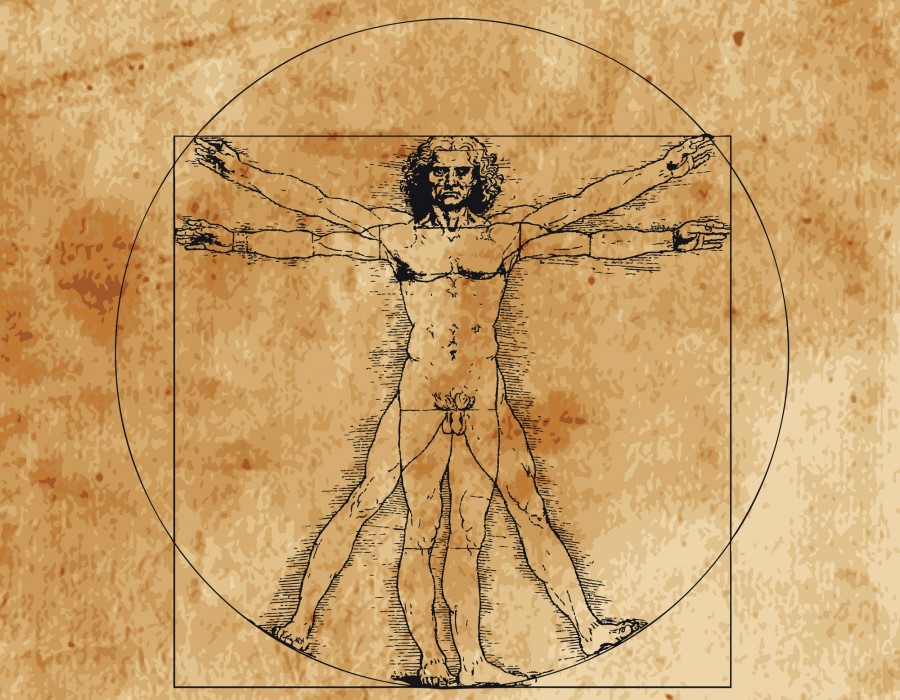Are people violent by nature? Probably.
But genes also predispose humans to cooperation and altruism.
January 19, 2014|By Luke Glowacki
Social scientists have spent the last three centuries embroiled in debate over the degree to which human nature and culture are responsible for war.
Do genes make us do it? The idea that human behavior is driven by genes makes many people uncomfortable, and nowhere is the dispute more bitter than when discussing the biological underpinnings of violence.
The war of ideas over violence and human nature has raged since the 1600s, when philosopher Thomas Hobbes first speculated that the "natural condition of mankind" was one of violence and conflict. In the 1700s, Jean-Jacques Rousseau saw things differently. Enthralled with accounts of the New World, he argued that civilization, not nature, shaped the human propensity for violence.
Social scientists have spent the last three centuries embroiled in debate over the degree to which human nature and culture are responsible for war.
In recent decades, biology has entered the fray. Since Jane Goodall first documented the disturbing reality that chimpanzee communities engage in lethal raids against other chimpanzees, evidence has been mounting in support of biological explanations for our species' capacity for warfare. Over the last few years, scientists have converged on something of a consensus: The human propensity for lethal violence against "out-group" members has deep evolutionary roots.
In pre-modern contexts, out-groups consisted of those who weren't members of one's foraging band or community. Today the basis for out-groups can take any form, including nationality, religious sect, ethnic background or political affiliation, none of which were important in our evolutionary history.
Although our peaceful cousins the bonobos are sometimes trumpeted as an example of an alternative evolutionary lineage, their more amicable relationships are not surprising from an evolutionary perspective. Biologists believe that early humans as well as chimpanzees faced resource competition, whereas bonobos had less resource scarcity, which allowed a species-specific capacity for peaceful intergroup relations to evolve.
Archaeology provides an important means to examine violence prior to European contact or colonization. In many cases, human remains provide evidence of warfare's place in prehistory. Skeletal injuries such as cranial fractures, parry wounds and dismemberment suggest lethal violence was common.
Coalitionary aggression can be inferred from the many examples of multiple traumas to a single individual, and from mass graves that often include women and children. Such burial sites have been found across the globe, including the notoriously grisly 14th century Crow Creek massacre in South Dakota, where the remains of nearly 500 bodies have been recovered. Given the scarcity of paleo-archaeological human remains, the fact that we have found so much evidence of violent conflict is telling about the nature of intergroup relationships in pre-history.
Anthropologists believe that warfare was common among many hunter-gatherers, though the exact nature and frequency continues to be the subject of debate. Groups that are sometimes cited as examples of peaceful societies today, such as the Hadza of Tanzania, had violent intergroup conflict in their recent past.
Oral histories gathered to document pre-contact customs in traditional societies often contain accounts of terrible violence. As one Inuit elder related to the anthropologist Franz Boas: "In olden times we fought so that the blood ran over the ground."
Although violent conflict seems to have been common in pre-history, it appears likely that as societies became more sedentary and hierarchal, there was a sharp increase in warfare as groups lost the capacity to move away from each other in times of conflict.
Some of the most riveting research on the subject has involved collaborations between economists, anthropologists and theoretical biologists, who have developed quantitative models and computer simulations. Samuel Bowles of the Santa Fe Institute, for instance, has led multidisciplinary studies demonstrating how warfare may have contributed to the evolution of humanity's exceptional altruism.
At the same time, social psychologists have documented what seems to be an innate disposition of humans to classify individuals into in-group and out-group members that can form the foundation for divisions leading to conflict.
Taken together the evidence points to an evolutionary basis for violent conflict. But fortunately, the story does not stop there. Warfare is only one part of our evolutionary legacy. The other is that humans evolved to be highly cooperative and responsive to cultural norms, including those that promote peaceful relationships.
Human cooperation, even more necessary than war for survival, has evolutionary roots as deep as those of human conflict. Just as groups may fight because of environmental pressures or resource scarcity, they may also have strong incentives to expand trade relations and build alliances that benefit both parties. The capacity for peaceful and cooperative relationships was surely more essential for the survival and success of the species than bellicosity.
What does all this mean for a future without war? Environmental pressures, resource competition and population density certainly influenced human evolution, predisposing us to competition and violence. But those same pressures can predispose us to cooperation as well. Whether our genes lead us to war or peace depends on the particular social environment in which we live.
Our genes don't make us do it. For that we need culture too.
Luke Glowacki is a doctoral candidate in human evolutionary biology at Harvard University.
- Abuse & The Abuser
- Achievement
- Activity, Fitness & Sport
- Aging & Maturity
- Altruism & Kindness
- Atrocities, Racism & Inequality
- Challenges & Pitfalls
- Choices & Decisions
- Communication Skills
- Crime & Punishment
- Dangerous Situations
- Dealing with Addictions
- Debatable Issues & Moral Questions
- Determination & Achievement
- Diet & Nutrition
- Employment & Career
- Ethical dilemmas
- Experience & Adventure
- Faith, Something to Believe in
- Fears & Phobias
- Friends & Acquaintances
- Habits. Good & Bad
- Honour & Respect
- Human Nature
- Image & Uniqueness
- Immediate Family Relations
- Influence & Negotiation
- Interdependence & Independence
- Life's Big Questions
- Love, Dating & Marriage
- Manners & Etiquette
- Money & Finances
- Moods & Emotions
- Other Beneficial Approaches
- Other Relationships
- Overall health
- Passions & Strengths
- Peace & Forgiveness
- Personal Change
- Personal Development
- Politics & Governance
- Positive & Negative Attitudes
- Rights & Freedom
- Self Harm & Self Sabotage
- Sexual Preferences
- Sexual Relations
- Sins
- Thanks & Gratitude
- The Legacy We Leave
- The Search for Happiness
- Time. Past, present & Future
- Today's World, Projecting Tomorrow
- Truth & Character
- Unattractive Qualities
- Wisdom & Knowledge






Comments